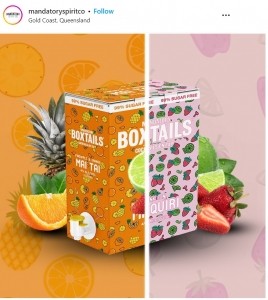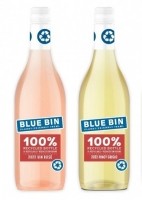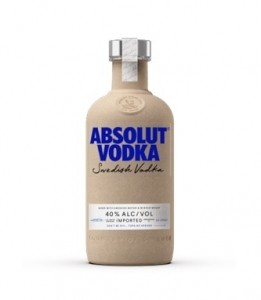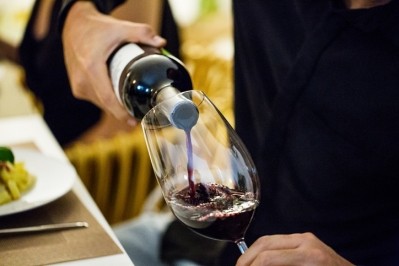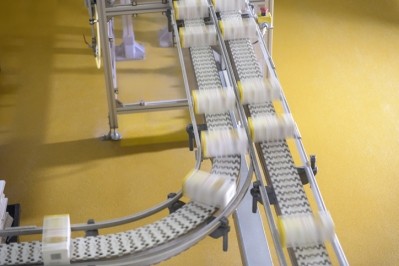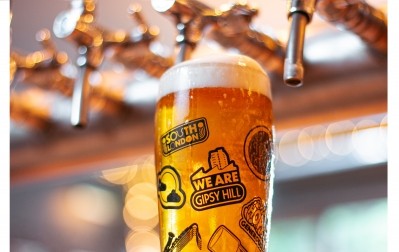Can wine and spirits really move away from glass? 'Today's consumers are extremely open to alternative pack formats'
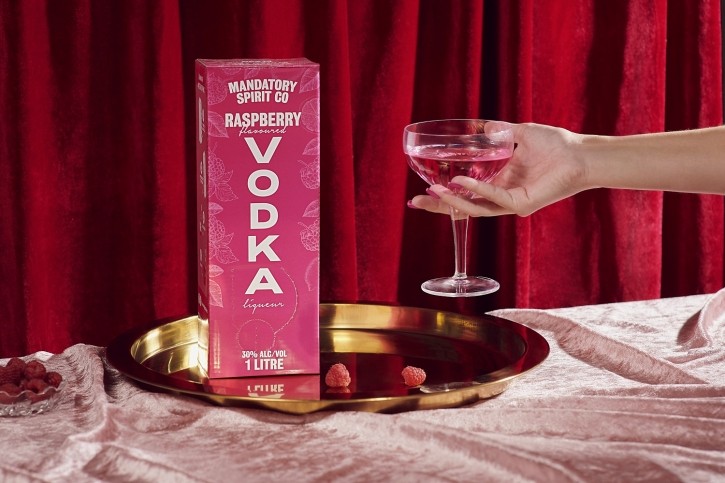
While there's plenty of enthusiasm for thinking outside the bottle, such alternative formats are only really in their infancy. One of the main challenges is that consumers have been used to buying and using glass bottles for spirits all their lives and are used to its premium look and feel.
So why are innovators of non-glass formats sure their designs will be welcomed by consumers? Is it because of the sustainability claims, or the practical advantages, or the branding that appeals to a new generation?
'Millennials and Gen Z have completely different expectations'
Mandatory Spirits Co claims an Australian-first with the launch of its bag-in-box format for spirits: citing a 72% reduction in fossil fuel compared to glass bottles.
“Bag in box has the lowest carbon footprint of any liquor packaging; the lightweight box shape minimises dead space while maximizing transport capacity, one truck transporting BIB carries the same volume as seven trucks carrying glass bottles, massively reducing transport costs and lowering emissions,” it says.
But if you put sustainability considerations to one side, the company still believes bag-in-box has a lot to offer consumers: “With Aussies increasingly looking for grab-and-go alcohol products to take to parties or gatherings with friends and family, packaging that is easy to open, dispense, and store is high on the consumer’s wish list.”
And that's particularly true for the younger generations, the brand’s co-founder Mark Collins told us.
“In our experience, consumers are extremely open to trying alternative pack formats. As generations change, so does the game," he said.
“Millennials and Gen Z, the two biggest consumer groups, come with a completely different set of priorities and expectations of brands. They expect packaging to have attributes that support and complement their on the go busy lifestyles, like sustainability, convenience, portability and bag in box trumps glass across all of these.”
Perhaps most importantly, though, Collins emphasises that success for his won’t come from simply being a practical or sustainable choice: that will come from offering an attractive and convincing brand proposition across the board – including a strong focus on taste and branding.
“To get acceptance, for us the key is face to face consumer interaction through in store activations,” he said.
“Liquid to lips is super important, as it creates trial without risk for the punters.
"Remember we are also dealing with a consumer group where 60% of them have purchased a product purely on how it looks and how it will look on Instagram.
"Being Instagrammable is a real thing: I may be biased, but we hands down win over glass there.”
'What's considered premium is very subjective'
If a BIB vodka brand can look just as good on Instagram as a premium glass bottle, Collins believes that’s a sign that BIB’s main challenge to date – associations with cheaper low-grade wine, particularly when stacked against a premium glass bottle – may no longer be an insurmountable problem.
“We don’t think consumers perceive BIB to be an inferior proposition, although maybe that stigma is still slightly around in the wine space," he said.
"We feel that even that mindset is rapidly changing, helped along by brands like UNBOTTLED and Hey Tomorrow putting quality juice into BIB, at the end of the day what you put into a pack format you also get out. The benefits of BIB overshadow old thought processes.
"What's considered to be premium is very subjective, so for us it’s about overall product proposition and ensuring we deliver on functionality, transparency, consistent product quality, as we know that’s important to our tribe."
Plastic wine bottles?
California’s Rob Rubin Winery agrees that convenience is what will help non-glass formats take on glass packaging. The winery has this year launched its 100% recycled polyethylene terephthalate plastic wine bottle: a plastic bottle lined with Plasmax, an ultra-thin layer of glass designed to ensure the wine’s taste and quality is protected (the bottle is still 100% recyclable).
Its new Blue Bin rPET bottles come in at 85% lighter than traditional glass bottles (52.8g as opposed to 530g). That's where its key sustainability advantages come into play: helping allow for more cases per truckload and reducing carbon emissions.
The winery believes plastic offers an alternative that allows wine to be enjoyed ‘where traditional glass wine bottles can’t or shouldn’t go’.
That could mean picnics, being out on the beach or camping – anywhere where the weight and fragility of glass could pose a problem – thus offering an advantage over glass bottles.
The Blue Bin wine is touted as a premium brand, with a $15 retail price which the brand estimates as comparable to a premium glass bottled wine retail price.
While plastic may not scream premium cues to most drinkers, the winery believes that the fundamental quality of the wine itself – along with the convenience and sustainability credentials so valued by consumers - will hold up the premium positioning.
Absolut: 'Consumer reservations might stem from past experiences with soggy paper straws. But once they've used our paper bottle, that turns into positivity'
Absolut Vodka has become the first global spirits brand to sell single-mould paper-based bottles commercially in the UK as part of its journey to create a bio-based bottle.
The paper bottle initiative is part of a wider collaboration with Paboco (the Paper Bottle Company) and their community of global brands The Coca-Cola Company, Carlsberg, P&G and L'Oréal – to work collectively to help the drinks and packaging industries push the boundaries for sustainable packaging.
The first-generation single-mould bottles are made from 57% paper with an integrated barrier of recyclable plastic.
The paper bottles are eight times lighter than glass and easier to carry, notes Absolut. The paper bottles retain the glass bottle's apothecary-inspired design.
However, Absolut is pragmatic about the role it expects the paper bottle to play: the end goal is for it to complement the brand's glass bottle, not replace it.
The brand believes the paper bottle can win over consumers at out-of-home occasions such as festivals.
"Paper is tactile; it’s beautiful; it’s authentic; it’s light and we have looked to embrace these qualities in our design," Elin Furelid, director of future packaging, told us.
"As a new type of packaging that is not familiar to consumers, it was important for us to use cues that signal the material the bottle is made of, whilst keeping the key design elements of Absolut Vodka intact to ensure it is aligned with the premium quality of the brand.
"The paper-based bottle retains its apothecary-inspired design and is instantly recognisable both in shape, logotype and typography.
"We also felt it was important to include a bold sustainability message on the bottle. Our claim that it was ‘not just an idea on paper’, reassures consumers and the drinks industry alike that Absolut is taking meaningful steps towards a 100% bio-based paper bottle and a more sustainable future."
The 500ml-sized single-mould paper bottles have been on sale in 22 Tesco stores (RRP £16) across Greater Manchester throughout the summer as a trial to see how consumers perceive the bottle (Manchester was chosen for its high recycling rates and recycling facilities - consumers can simply recycle the packaging as paper in normal household waste).
"Feedback from the Manchester trial has been very positive. Sales have been consistent, and consumers have been appreciative of our paper-based bottle," said Furelid.
"Its 500 ml size and lightweight nature make it convenient for on-the-go usage, building our confidence that it's a more than worthy complement to our glass bottle."
Like Mandatory Spirit Co, Absolut learnt from the trial that getting the product out to consumers is a key way of convincing them to consider the format.
"Notably, we have found that consumers and bartenders expressed initial scepticism about the bottle's functionality," said Furelid. "I suspect these reservations might stem from past experiences with subpar paper products, like the early versions of soggy paper straws.
"However, once they've used our paper-based bottle, this scepticism disappears and turns into enthusiasm and positivity.
"The campaign promoting the trial has also generated significant excitement. Our two-meter-high paper bottle replica was even stolen from our OOH billboard! We take that as a compliment!"
